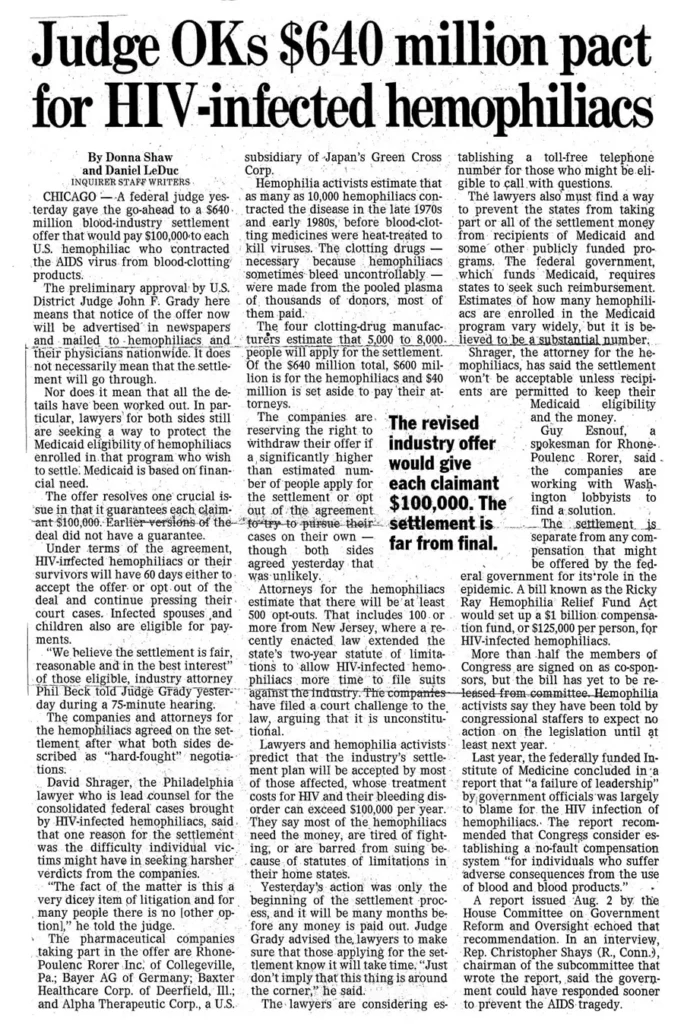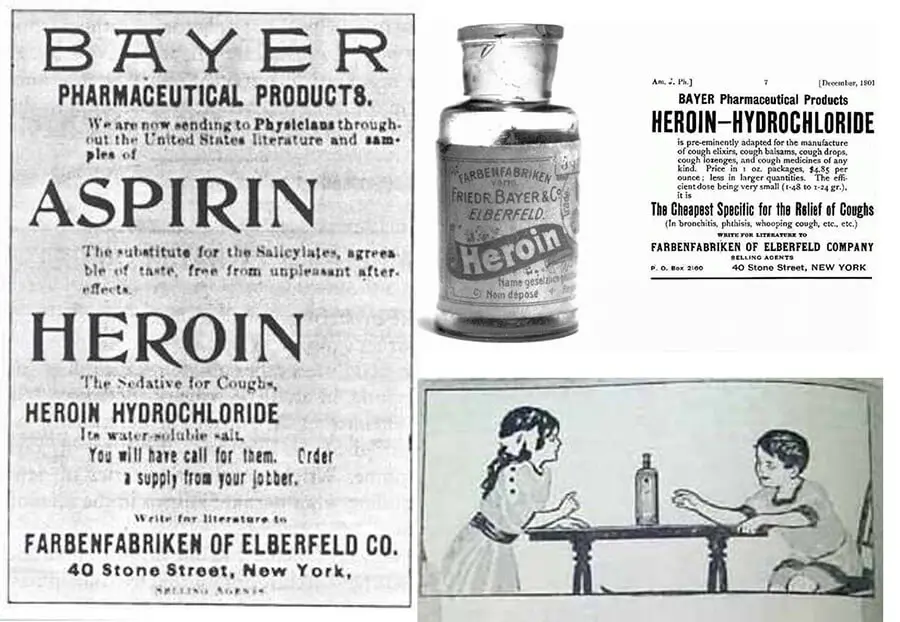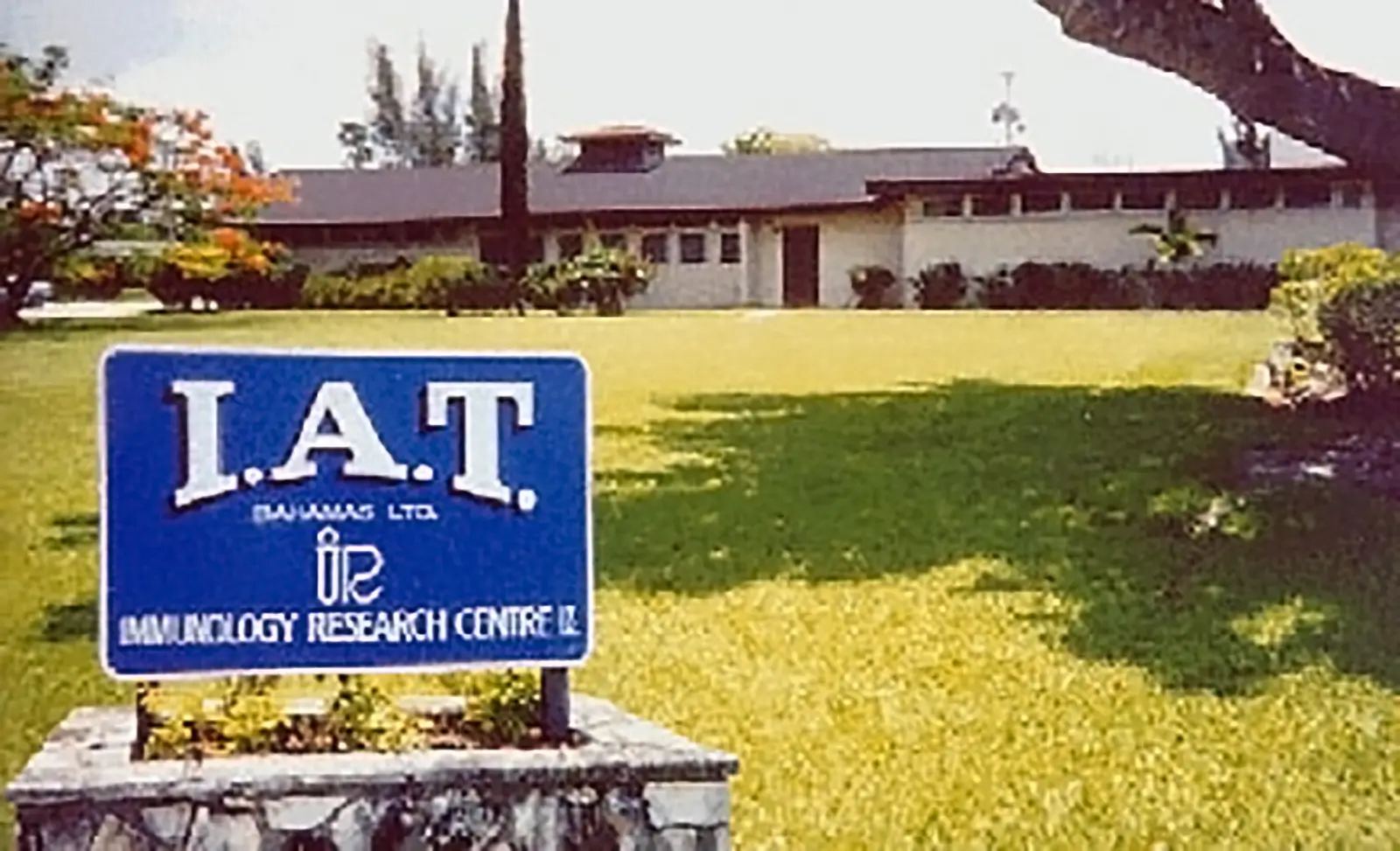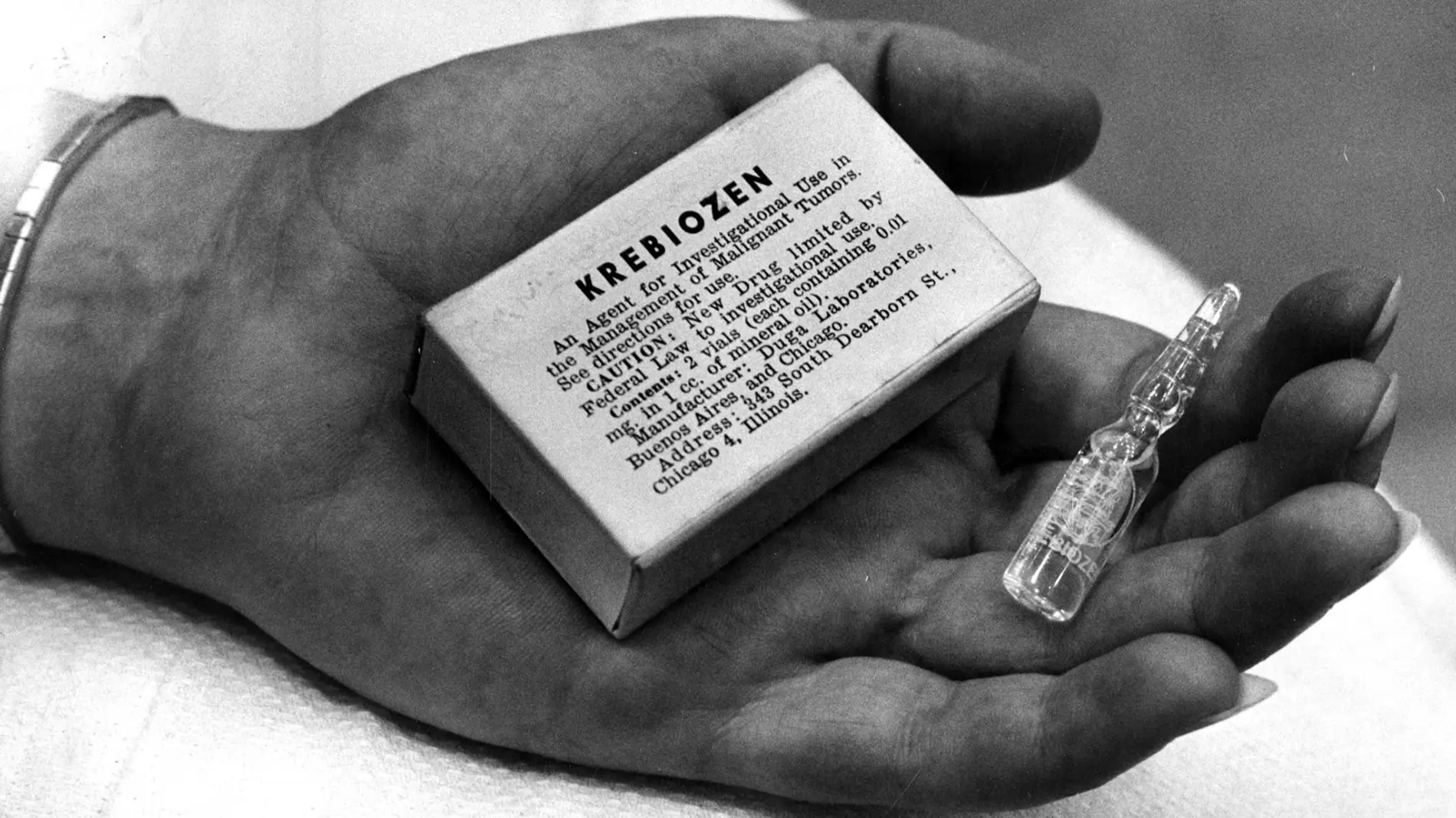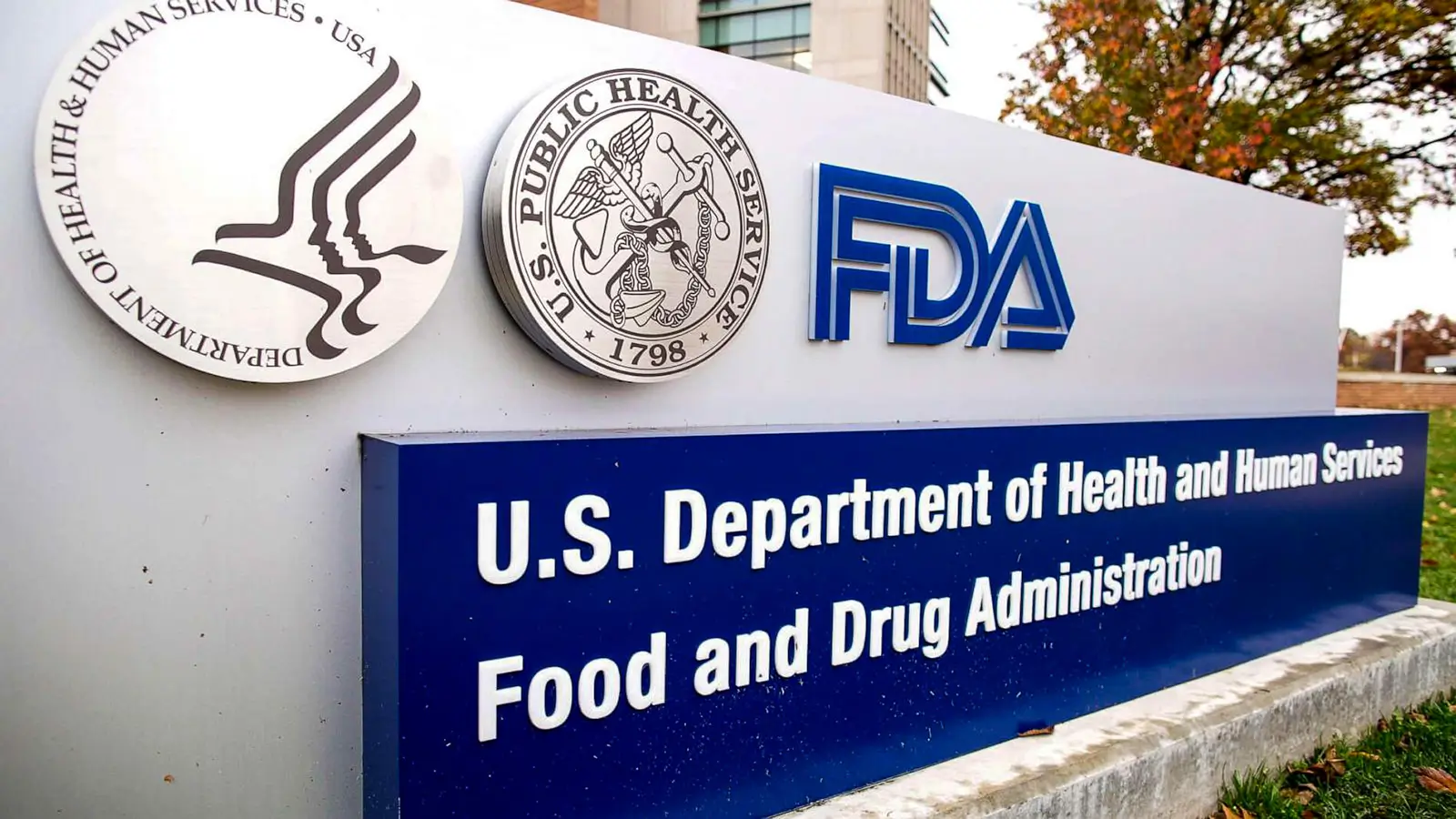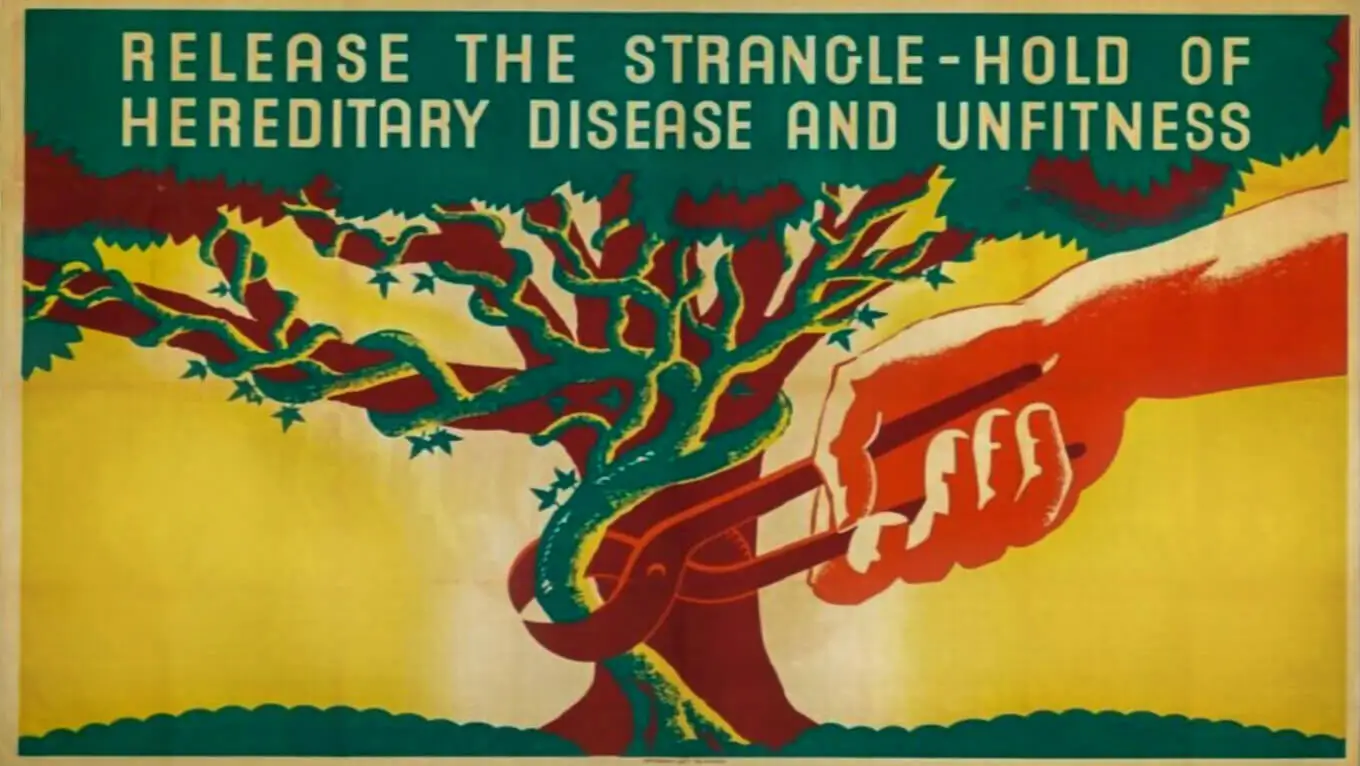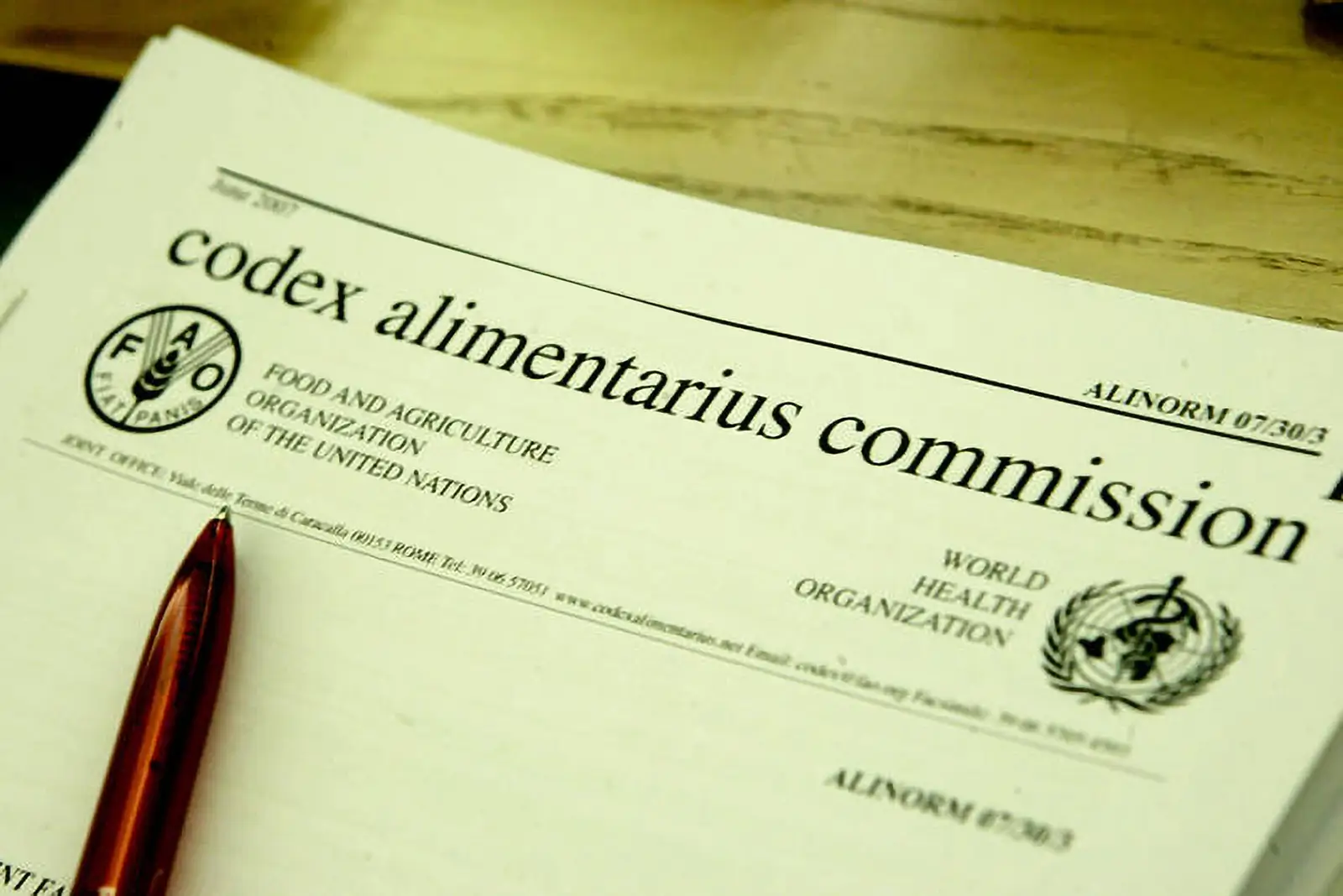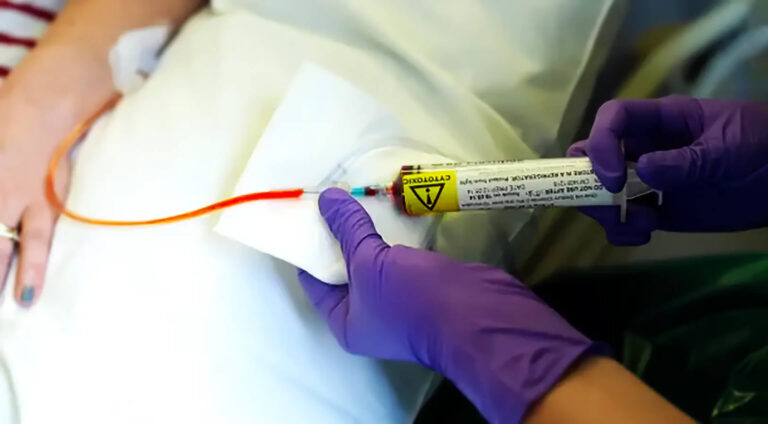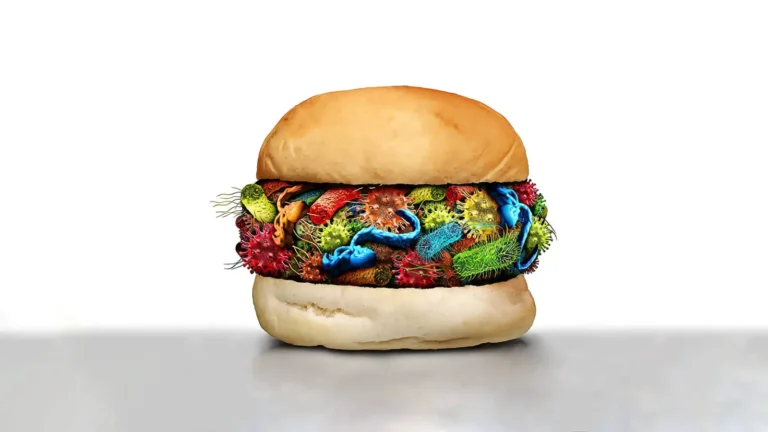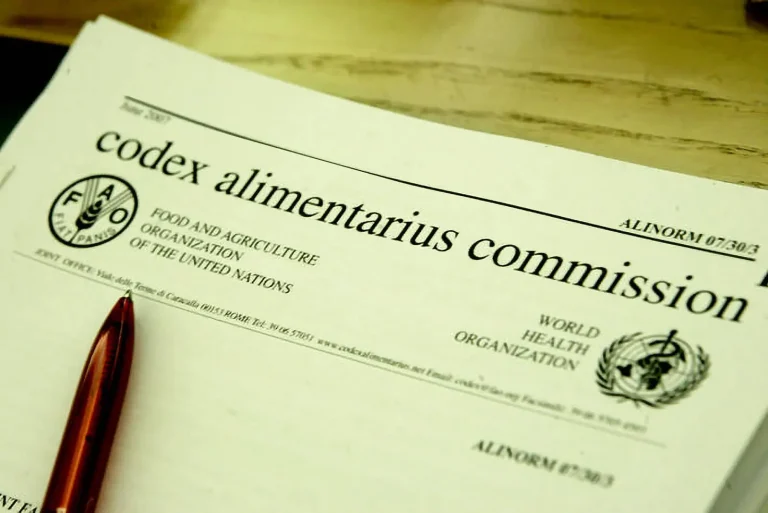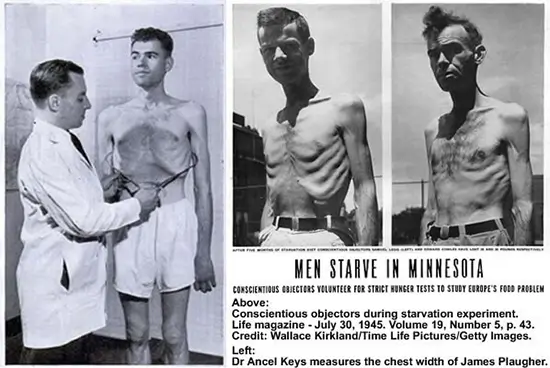A História da Grande Farmácia - Bayer (IG Farben), FDA e o vírus da SIDA
A Bayer pago centenas de milhões de dólares para acabar com uma de três década escândalo no qual a empresa vendeu contaminados pelo HIV sangue para hemofílicos, milhares de quem morreu de AIDS.
Milos Pokimica
Escrito por: Milos Pokimica
Revisto Clinicamente Por: Dr. Xiùying Wáng, M.D.
Atualizado em 4 de agosto de 2023A ciência nutricional explicou todas as ligações entre as doenças de afluência e o consumo de alimentos para animais há décadas atrás. A maioria dos nossos assassinos número um são evitáveis, mas não há interesse em mudar o actual ramo de negócio. Toda a ciência disponível será mantida fora do público e, na realidade, isso não importa.
O que a maioria das pessoas sabe é apenas propaganda. Os médicos são bons, têm de fazer um juramento hipocrático, existem para o curar e ajudar, e é claro que um dia a medicina vai livrar-nos de todas as doenças. Normalmente, quando as pessoas são confrontadas com a verdadeira história por detrás das grandes farmácias e se apercebem da verdade de que government itself has a network for suppressing the science and that individual men’s interest is not its primary goal, costumam dizer que tudo isto pertence ao passado. Hoje temos mais democracia e liberdades com melhor controlo governamental e assim por diante.
A resposta é não. Temos ainda menos liberdades do que depois da Segunda Guerra Mundial. Fizeram-nos uma lavagem ao cérebro nas escolas e pelos meios de comunicação social infundidos de investigação psicológica para controlo social, mas nada mais é diferente. A mesma estrutura existe e tem vindo a existir não só desde a meia-idade, mas mesmo antes disso.
I will give one more recent example. You’d probably never know that Bayer (IG Farben) paid “tens of millions” of dollars to end a three-decade-long scandal in which the company sold HIV-contaminated blood products to hemophiliacs, thousands of whom later died of AIDS. Bayer is eventually forced into signing checks to individuals that acquired AIDS because, in the 1980s, the Cutter Biological section of Bayer neglected federal law and recruited gay men with high risk and intravenous drug users, and prisoners as donors of the blood that Cutter later used to produce Factor VIII and IX. It is a drug, the clotting product, that hemophiliacs need in order to not bleed to death. In 1997 Bayer was sentenced to pay 600 million into a compensation fund for hemophiliacs with HIV. About 20,000 individuals caught HIV from the blood.
Ironically, Bayer’s new hemophilia iPhone app got some coverage, as did Bayer’s hemophilia research grant to the University of Florida.
A 16 de Julho de 1982, os Centros de Controlo e Prevenção de Doenças dos Estados Unidos (CDC) sugeriram que três hemofílicos tinham adquirido a SIDA. Os epidemiologistas começaram a pensar que o vírus se estava a propagar através de medicamentos hemofílicos que injectam uma vez por semana. A medicação era feita a partir de grandes piscinas de plasma doado por diferentes pessoas. Muitos dos quais foram recolhidos antes da despistagem obrigatória do VIH, muitas vezes de homossexuais e utilizadores de drogas e em algumas prisões. Sem um teste de infecção, não tinham forma de determinar se os doadores de plasma transportavam o vírus. Em Janeiro de 1983, o director do departamento de Biologia Cutter da Bayer confirmou numa carta que:
“There is strong evidence to suggest that AIDS is passed on to other people through … plasma products.”
These letters surfaced in trials and were found by some of the investigative journalists that later broke the story public. By May 1983, a Cutter competitor started producing a heat-treated concentrate that killed the virus, so France for example, and many other countries decided to halt all clotting concentrate imports. Cutter worried about losing consumers, so according to an enclosed memo: “want to give the impression that we continue improving our product without telling them that soon we were also going to have a heat-treated” concentrate. By June 1983, a Cutter letter to distributors to 20 countries said that:
“AIDS has become the center of irrational response in many countries” and that “This is of particular concern to us because of unsubstantiated speculations that certain blood products may transmit this syndrome.”
They lied, and many countries were still using an old concentrate. In February 1984, Cutter became the last of the four major blood product companies to get US approval to sell heated concentrate. They waited as long as possible. Still even after Cutter started to sell the new product, still for several more months, they continued making the old medicine. The reason was that the corporation had several fixed-price contracts and thought that the old product would be cheaper to produce. Bayer officials (responding on behalf of Cutter) responded with another lie: “because some customers doubted the new drug’s effectiveness,” some nations were slow to support registration of the new drug. Then they lied by telling that they had a shortage of plasma, which is used to make the medicine. For example, Taiwan was one country that still received the old HIV-infected drug. Hsu Chien-wen, an official at Taiwan’s health department, told in 2003 that Cutter had not appealed for approval to sell the heated medicine until July 1985. That was for an entire year and a half after doing so in the United States. In Hong Kong, for example, Cutter did not even need approval but only an import license in the 1980s to be able to import and sell the newer product in which normally takes one week. A company meeting notes that:
“There is excess inventory,”
que, na realidade, produziu a empresa resolvendo-se a fazê-lo:
“Review international markets again to determine if more of this product can be sold.”
Because of the lack of control and corruption Cutter decided to dispose of stockpiles of older HIV-positive drugs to third world countries while selling the new, safer product in the West. If some of the people catch AIDS well, they can take Aspirin for pain. And of course, there are all third world countries, so it is going to go well with eugenic programs of depopulation of the planet. When hemophiliacs in Hong Kong all of the sudden start to test positive for HIV, local physicians raised the question of whether Cutter was dumping “AIDS tainted” medicine into less-developed countries. Cutter rejected the accusation, insisting that older drug had “no severe hazard risk” and was, in fact, the “same fine product we have supplied for years.” Hong Kong did not believe the lie, and when the local distributor asked for the newer product, Cutter responded that all of the new product was going to the US and Europe. For Hong Kong, and other third-world countries they could make an exception for a small amount for the “most vocal patients.” Meaning influential people that could potentially make a problem for them. So if you are a son of a politician, they will give you new safe stuff.
A Food and Drug Administration dos Estados Unidos ajudou a manter as notícias fora dos olhos do público. Government is not there to protect you and never had been. In May 1985, the FDA’s regulator of blood products, Harry M. Meyer Jr., considering the companies had violated a voluntary arrangement to remove the old drug from the market, called directors of the corporations and directed them to comply. Cutter’s internal notes from their meeting show that Meyer required that the issue is:
“Quietly solved without alerting the Congress, the medical community and the public”
also noted that the FDA wanted the matter solved “quickly and quietly.” Also at that time, Cutter official wrote that:
“It appears there are no longer any markets in the Far East where we can expect to sell substantial quantities of nonheated-treated medicine.”
They sell AIDS-tainted medicine as long as possible with no empathy. The effects of all of this are impossible to calculate because there was no test for HIV, so we do not know how many people were infected with HIV before Cutter began selling its safer medicine or afterward. Cutter also sold the old medicine in Argentina, Indonesia, Japan, Malaysia, and Singapore after February 1984. Cutter shipped more than 100,000 vials of unheated concentrate, worth more than $4 million after it began selling the safer product. The sales continued partly because of Cutter’s desire to deplete stocks of the older medicine, and partly because of fixed-price contracts, for which the company believed the older product would be cheaper to make. U.S. Justice Department had never investigated any corporate executives. Bayer in the past even marketed heroin for children. That is the level of psychopathic nature of these people.
Referências:
Passagens seleccionadas de um livro: Pokimica, Milos. Tornar-se Vegan? Revisão da Ciência Parte 2. Kindle ed., Amazon, 2018.
- McHenry L, Khoshnood M. Blood money: Bayer’s inventory of HIV-contaminated blood products and third world hemophiliacs. Account Res. 2014;21(6):389-400. doi: 10.1080/08989621.2014.882780. PMID: 24785997.
- Josefson D. Haemophilia patients launch action against Bayer over contaminated blood products. BMJ. 2003 Jun 14;326(7402):1286. doi: 10.1136/bmj.326.7402.1286-g. PMID: 12805147; PMCID: PMC1151015.
Publicações Relacionadas
Você tem alguma dúvida sobre saúde e nutrição?
Eu adoraria ouvir de você e respondê-las em meu próximo post. Agradeço sua contribuição e opinião e espero ouvir de você em breve. Eu também convido você a siga-nos no Facebook, Instagram e Pinterest para mais conteúdos sobre dieta, nutrição e saúde. Pode deixar um comentário e ligar-se a outros entusiastas da saúde, partilhar as suas dicas e experiências e obter apoio e encorajamento da nossa equipa e comunidade.
Espero que este post tenha sido informativo e agradável para si e que esteja preparado para aplicar os conhecimentos que aprendeu. Se achou este post útil, por favor partilhá-lo com os seus amigos e familiares que também possam beneficiar com isso. Nunca se sabe quem poderá precisar de alguma orientação e apoio no seu percurso de saúde.
– Você Também Pode Gostar –

Aprender Sobre Nutrição
Milos Pokimica é médico de medicina natural, nutricionista clínico, escritor de saúde e nutrição médica, e conselheiro em ciências nutricionais. Autor da série de livros Go Vegan? Revisão de Ciênciaopera também o website de saúde natural GoVeganWay.com
Medical Disclaimer
GoVeganWay.com traz análises das pesquisas mais recentes sobre nutrição e saúde. As informações fornecidas representam a opinião pessoal do autor e não pretendem nem implicam substituir aconselhamento, diagnóstico ou tratamento médico profissional. As informações fornecidas são apenas para fins informativos e não se destinam a servir como substituto para consulta, diagnóstico e/ou tratamento médico de um médico ou profissional de saúde qualificado.NUNCA DESCONSIDERE o CONSELHO MÉDICO PROFISSIONAL OU adiar a BUSCA de TRATAMENTO MÉDICO por causa DE ALGO QUE TENHA LIDO OU ACESSADO por MEIO de GoVeganWay.com
NUNCA APLIQUE QUAISQUER MUDANÇAS de estilo de VIDA OU QUALQUER MUDANÇA COMO UMA CONSEQUÊNCIA DE ALGO QUE TENHA LIDO NO GoVeganWay.com ANTES de CONSULTORIA de LICENÇA MÉDICA.
No caso de uma emergência médica, ligue para o médico ou para o 911 imediatamente. GoVeganWay.com não recomenda ou endossa qualquer específicos, grupos, organizações, exames, médicos, produtos, procedimentos, opiniões ou outras informações que podem ser mencionadas dentro.
Sugestões do Editor –
Milos Pokimica é médico de medicina natural, nutricionista clínico, escritor de saúde e nutrição médica, e conselheiro em ciências nutricionais. Autor da série de livros Go Vegan? Revisão de Ciênciaopera também o website de saúde natural GoVeganWay.com
Artigos Mais Recentes -
Planta De Notícias Com Base Em
-
Vegan Marathoner To Run Length Of UK For His 60th Birthday
on Julho 1, 2025
-
These Easy Plant-Based Enchiladas Are Oil-Free
on Julho 1, 2025
-
‘This Is Our Most Popular Vegan Salad After 20 Years In Business’
on Julho 1, 2025
-
Plant-Based Foods ‘More Viable’ Option Than Insect-Based For Replacing Meat
on Julho 1, 2025
-
Texas Has Become The Seventh US State To Ban Cultivated Meat Sales
on Junho 30, 2025
-
Vegan Feta And Corn Salad
on Junho 30, 2025
-
Sunflower Meal Is A ‘Promising’ New Protein Base For Meat Alternatives, Says Study
on Junho 30, 2025
Superior De Saúde De Notícias — ScienceDaily
- Scientists just mapped how the body rejects pig organs—and how to stop iton Julho 1, 2025
Scientists have achieved an unprecedented look into how the human immune system attacks a transplanted pig kidney, using spatial molecular imaging to map immune activity down to the cellular level. They discovered early signs of rejection within 10 days and pinpointed key immune players—like macrophages—driving the response. Even more exciting: when targeted therapies were applied, the immune assault weakened. As U.S. clinical trials of pig kidney transplants begin, this breakthrough offers […]
- This virus infects millions—and we just discovered its secret weaponon Julho 1, 2025
Scientists have discovered a stealthy mechanism that cytomegalovirus (CMV)—the leading infectious cause of birth defects in the U.S.—uses to infiltrate blood vessel cells while evading immune detection. The virus forms a hidden protein complex that acts like a molecular “backdoor,” allowing it to bypass the immune system’s defenses. This newly identified pathway may explain why vaccine efforts have failed for decades and opens the door to targeted therapies that could finally prevent […]
- Scientists just found a sugar switch that protects your brain from Alzheimer’son Junho 30, 2025
Scientists have uncovered a surprising sugar-related mechanism inside brain cells that could transform how we fight Alzheimer’s and other dementias. It turns out neurons don’t just store sugar for fuel—they reroute it to power antioxidant defenses, but only if an enzyme called GlyP is active. When this sugar-clearing system is blocked, toxic tau protein builds up and accelerates brain degeneration.
- This AI tracks lung tumors as you breathe — and it might save liveson Junho 30, 2025
An AI system called iSeg is reshaping radiation oncology by automatically outlining lung tumors in 3D as they shift with each breath. Trained on scans from nine hospitals, the tool matched expert clinicians, flagged cancer zones some missed, and could speed up treatment planning while reducing deadly oversights.
- Ancient DNA reveals leprosy hit the Americas long before colonizationon Junho 30, 2025
Leprosy’s tale stretches from 5,000-year-old skeletons in Eurasia to a startling 4,000-year-old case in Chile, revealing that the rare strain Mycobacterium lepromatosis haunted the Americas millennia before Europeans arrived. Armed with cutting-edge ancient-DNA sleuthing, scientists have pieced together remarkably well-preserved genomes that challenge the idea of leprosy as purely a colonial import and hint that the disease may have homegrown American roots awaiting confirmation by future […]
- Scientists discover ‘off switch’ enzyme that could stop heart disease and diabeteson Junho 30, 2025
Researchers at UT Arlington have discovered a key enzyme, IDO1, that when blocked, helps immune cells regain their ability to properly process cholesterol—something that breaks down during inflammation. This breakthrough could offer a powerful new way to fight heart disease, diabetes, cancer, and more. By “turning off” this enzyme, the team restored cholesterol absorption in macrophages, potentially stopping disease at the source. Even more promising, they found a second enzyme, NOS, that […]
- Fire smoke exposure leaves toxic metals and lasting immune changeson Junho 30, 2025
Smoke from wildfires and structural fires doesn t just irritate lungs it actually changes your immune system. Harvard scientists found that even healthy people exposed to smoke showed signs of immune system activation, genetic changes tied to allergies, and even toxic metals inside their immune cells.
PubMed, #vegan-dieta –
- Blood biomarkers of Alzheimer’s disease in Australians habitually consuming various plant-based dietson Junho 30, 2025
BackgroundEvidence suggests that plant-based diets (PBDs) may be protective against neurodegenerative diseases such as Alzheimer’s disease (AD).ObjectiveThis study examined associations between blood-based AD biomarkers in individuals 30-75 years without current or diagnosed cardiovascular disease following different PBDs versus regular meat-eating diets (RMEs).MethodsThis secondary analysis of the Plant-based Diets study measured Aβ(1-42)/Aβ(1-40), p-tau181, NFL, and GFAP in 237 plasma […]
- Zinc supplementation among zinc-deficient vegetarians and vegans restores antiviral interferon-α response by upregulating interferon regulatory factor 3on Junho 28, 2025
CONCLUSION: We identified zinc-dependent IRF3 expression as an essential cellular mechanism behind impaired IFNα response in zinc-deficient subjects. This may contribute to disturbed antiviral immunity and cause increased susceptibility to virus infections in vivo. Oral zinc supplementation effectively restored IRF3 and IFNα levels. Hence, nutritional interventions may become increasingly important in order to prevent health implications from micronutrient deficiencies among vegetarians and…
- Dietary Patterns and Sustainable Lifestyles: A Multicenter Study from Latin America and Spainon Junho 26, 2025
Food systems interact through multiple dimensions including food security, nutrition, and planetary health. This study aims to associate different dietary patterns with sustainable lifestyles in Latin America and Spain. This was an observational, analytical, multicenter, cross-sectional survey study, with a total of 6412 participants. A self-administered questionnaire was developed in an online format in the Google Docs interface. The questionnaire was divided into sections: (1) […]
- Micronutrient intake and nutritional status in 16-to-24-year-olds adhering to vegan, lacto-ovo-vegetarian, pescatarian or omnivorous diets in Swedenon Junho 26, 2025
CONCLUSION: Youth, regardless of dietary practice, need support to ensure adequate micronutrient intakes, particularly for vitamin D and selenium. Further research is required to evaluate iodine nutrition in Swedish youth.
- Integrating comparative genomics and risk classification by assessing virulence, antimicrobial resistance, and plasmid spread in microbial communities with gSpreadCompon Junho 26, 2025
CONCLUSIONS: The gSpreadComp workflow aims to facilitate hypothesis generation for targeted experimental validations by the identification of concerning resistant hotspots in complex microbial datasets. Our study raises attention to a more thorough study of the critical role of diet in microbial community dynamics and the spread of AMR. This research underscores the importance of integrating genomic data into public health strategies to combat AMR. The gSpreadComp workflow is available at…
Postagens aleatórias –
Postagens em destaque –

Últimas do PubMed, #dieta baseada em vegetais –
- Blood biomarkers of Alzheimer’s disease in Australians habitually consuming various plant-based dietspor Shaun Eslick on Junho 30, 2025
BackgroundEvidence suggests that plant-based diets (PBDs) may be protective against neurodegenerative diseases such as Alzheimer’s disease (AD).ObjectiveThis study examined associations between blood-based AD biomarkers in individuals 30-75 years without current or diagnosed cardiovascular disease following different PBDs versus regular meat-eating diets (RMEs).MethodsThis secondary analysis of the Plant-based Diets study measured Aβ(1-42)/Aβ(1-40), p-tau181, NFL, and GFAP in 237 plasma […]
- Association of plant-based diets with subclinical cardiovascular disease in U.S. adults, 1999-2004por Audrey Ting on Junho 30, 2025
CONCLUSION: Higher adherence to a healthy plant-based diet was inversely associated with elevated cTnI and higher adherence to an unhealthy plant-based diet was positively associated with elevated cTnI in a nationally representative sample of U.S. adults. Supporting access to and adoption of healthy plant-based diets may be a useful strategy for promoting population-level cardiovascular health.
- Metaproteomics-based stable isotope fingerprinting links intestinal bacteria to their carbon source and captures diet-induced substrate switchingpor Angie Mordant on Junho 29, 2025
Diet has strong impacts on the composition and function of the gut microbiota with implications for host health. Therefore, it is critical to identify the dietary components that support growth of specific microorganisms in vivo. We used protein-based stable isotope fingerprinting (Protein-SIF) to link microbial species in gut microbiota to their carbon sources by measuring each microorganism’s natural 13C content (δ13C) and matching it to the 13C content of available substrates. We fed…
- Prevalence and socio-economic disparities in vegetarianism and flexitarianism over 15 years: the Dutch Lifelines Cohortpor Yinjie Zhu on Junho 29, 2025
Transitioning to more plant-based diets is crucial for both planetary and human health, and ensuring an equitable transition across all socio-economic groups is also important. However, empirical evidence on the prevalence and socio-economic disparities in vegetarianism and flexitarianism over time in the same population is scarce. This study investigated this in a general Dutch adult population over 15 years. From three general assessments of the Dutch Lifelines study, 143 359 participants […]
- A Plant-Based Diet for Cardiovascular Risk Reduction in Kidney Disease with a Focus on Cardiovascular-Kidney-Metabolic Syndromepor Rachel Shi on Junho 29, 2025
Cardiovascular-kidney-metabolic (CKM) syndrome is a complex disorder involving an interplay of metabolic risk factors such as obesity, type 2 diabetes mellitus, hyperlipidemia, hypertension, and chronic kidney disease. Because these risk factors augment the risk for cardiovascular complications, healthy nutrition in CKM syndrome is crucial. In particular, a healthy plant-based diet is effective in improving metabolic dysfunction through weight loss, enhancing glucose and blood pressure […]
- Zinc supplementation among zinc-deficient vegetarians and vegans restores antiviral interferon-α response by upregulating interferon regulatory factor 3por Fynn Vallboehmer on Junho 28, 2025
CONCLUSION: We identified zinc-dependent IRF3 expression as an essential cellular mechanism behind impaired IFNα response in zinc-deficient subjects. This may contribute to disturbed antiviral immunity and cause increased susceptibility to virus infections in vivo. Oral zinc supplementation effectively restored IRF3 and IFNα levels. Hence, nutritional interventions may become increasingly important in order to prevent health implications from micronutrient deficiencies among vegetarians and…
